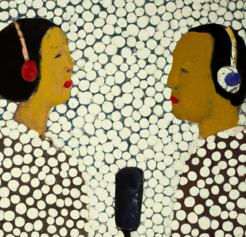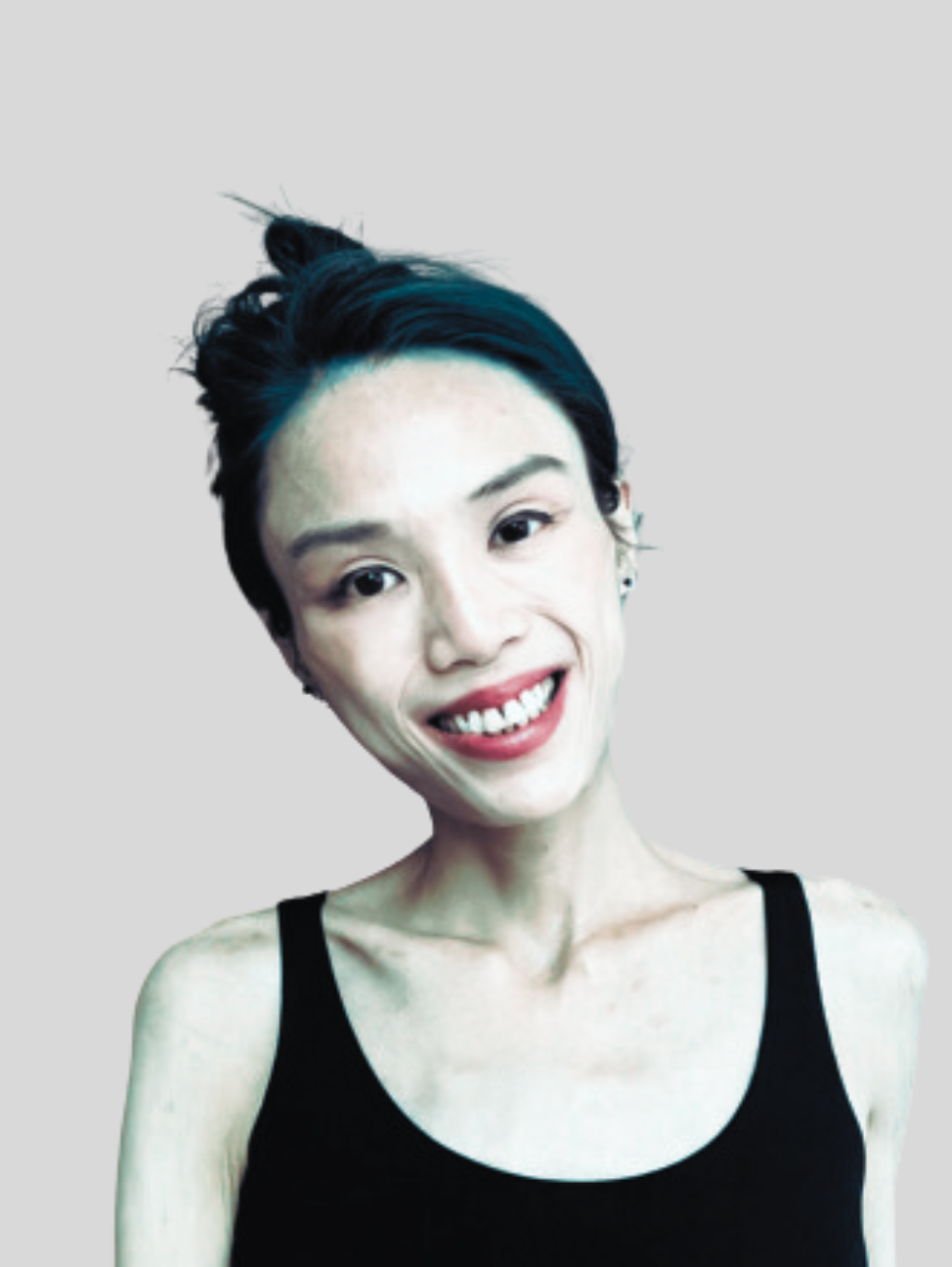I have the honour of talking to Eric Maisel. Eric is the author of more than 50 books and is widely regarded as America’s foremost creativity coach. His most famous books include Fearless Creating (1995), The Van Gogh’s Blues (2002), Coaching the Artist Within (2005), and The Atheist’s Way (2009). In this article, we discuss the wounds of being children of authoritarian people, how we can liberate ourselves, and Eric’s advice on parenting.
This article is largely based on a conversation with Eric Maisel, plus my own research. It is not meant as medical or professional advice.
AUTHORITARIAN PEOPLE
The authoritarian personality was first identified by Adorno et al. (1950). People with an Authoritarian personality type :
Categorise the world in a black-or-white manner
Hold a tyrannical attitude towards those who deem inferior in rank or weaker in any way
Adore power and authority
Believe in aggression towards those who are different
Have a blind allegiance to conventional beliefs about right and wrong
Hold a negative view of human nature, and believe that people would all lie, cheat or steal if given the opportunity
Have the tendency to project their feelings of inadequacy and vulnerability onto a scapegoat or a scapegoated group
Have a preoccupation with violence and sex
A group of researchers at the University of California, Berkeley published a book called The Authoritarian Personality, in which they examined the personality characteristics of authoritarian leaders and authoritarian followers. This investigation started out as an attempt to understand why so many people followed Hitler. Applying this to our world today, we may ask not only ‘why there is a Trump?’, but also ‘why do so many people follow a Trump?’
THE INVISIBLE HORROR OF HAVING AUTHORITARIAN PARENTS
Although there is a body of literature about adverse childhood events, most of them do not address authoritarians in the family.
In his own research, Eric Maisel put out an authoritarian wound questionnaires, inviting people to tell their stories about growing up with an authoritarian family member—mother or father, brother, sister, aunt, uncle, grandmother, grandfather. The stories were harrowing. He also found that the stories were equally divided among authoritarian fathers and authoritarian mothers. There was no gender difference when it comes to authoritarian personality.
Approximately 25% of humankind are authoritarian. These are people who are attracted to the prospect of oppressing others. They are intrusive, and act like there are rules that should not be violated but then break those rules themselves.
They’re filled with hatred and their basic desire is to punish others, though they may not look like punishers because on the surface, they are charming.
Sadly, this is an under-recognised problem. Our society does not like having a spotlight turned on authoritarians because our world Is largely ruled by them. As a result, we don’t talk about the cruelty in families even it is blatantly there.
As children, we were powerless and could not escape the situation. And since we live in a sugar coating culture, we had our friends and relatives reinforcing the idea that our parents were ‘lovely people’. We were silenced and stifled. As children of authoritarian parents, we hold a horrid truth that could not be named.
Also, if you were born intense and sensitive, your own siblings may not have the same experience. If you are the oldest child, the younger sibling who was born 10 years later may have a very different experience. Your parents might have mellowed over those 10 years, so that your younger sibling did not see what you saw. You might have been the scapegoated whistleblower. You are the one to point out the elephants in the room. But because the others can’t see or feel it, you become the ‘problem’. Growing up, you had no advocates, no allies, even in your own family.
As a child, it was a scary prospect to think of your parents as bad people, let alone thinking about cutting them off. So you’ve adopted this way of being where you automatically blame yourself and internalise everything. Even as an adult, you may not feel your trauma is legitimate. You may say, “No, I haven’t been through trauma. Look at me. I haven’t been beaten up. Look at other people. They’ve been through a lot worse.”
But you ought to trust your most basic feelings, which is that you were harmed. Trying to set the bar as to what’s enough harm to classify yourself in some category is not useful. If you feel that you were harmed, you likely were.
And if you were harmed, that has lifelong consequences and helps explain some of the things that may be otherwise inexplicable. Like why you don’t have confidence, or why you have all of these talents that you’ve never manifested, or why your relationships seem never to work. Or why you’re meaner to your own kids than you know you want to be— you’re repeating something there, even though you know you hated having it done to you.
HOW AUTHORITARIAN PARENTING HINDERS OUR CREATIVITY
Getting into a creative space requires a specific process. Typically, we don’t understand the extent to which mistakes and messes are part of it. It is hard to be innovative because it does not always feel safe— all day long we’re supposed to do things right, to drive on the correct side of the road, pick up our kids at 3:00 and weed the garden and do one right thing after another.
Then, when we enter a creative space, we struggle to switchgear. We do not find it easy to stop everything and suddenly gain permission to make a mess. So another day goes by where we don’t create. And another day goes by and seven years go by. It is all because we don’t have real permission to make a mess. Especially, if our authoritarian parents have never given us any permission to spill the milk or to do anything messy.
HOW DO WE START HEALING FROM OUR PAST TRAUMA?
Self- awareness is the key.
You have to understand your own mind by going inward— through a process called ‘dynamic indwelling’.
You should have a certain kind of self-relationship inside where you have smart conversations with yourself and try to understand what’s going on. This is so that you A) don’t repeat the things you don’t want to be doing. And B) can make those changes you know you want to make.
Sadly, having authoritarian parents is not a problem that can be easily solved. If you are born into a toxic family of this kind, the only thing you could do is to walk away. You cannot change your parents, and you cannot change the system. In Eric’s research, all of the respondents said the only thing that worked was to get thousands of miles away and not go back.
Of course, this is never easy. A myriad of confusing and conflicting feelings will come up. One of the feelings that wounded children as adults feel is guilt. They feel guilty that they don’t love their parents, that they don’t want to be around their parents, that they don’t want to take care of their ageing parents.
With this scar, you do not feel safe. A lot of people even have a physical reaction when they are around their toxic parents. They feel shaky, or like a child on the inside, even when they’re a 60-year-old attending an 80-year-old’s funeral.
Conventional therapists tend not to give direct advice. But as a coach, Eric does make suggestions, and that is to not go to or show up in family situations.
ERIC’S PARENTING ADVICE
Eric has a lot to say about authoritarian parenting, but most parents genuinely want to do a good job. I asked Eric what his advice to parents might be.
To him, worldly achievement should not be prized above our children’s natural growth and mental health.
To start, we need to ask ourselves the outcome we want as a parent— which is not the same as what’s best for our child.
If you want Mozart, you probably have to pester your child every five minutes about composing. If you want a virtuoso, you probably have to pester your child every three minutes about practising. You might say to yourself, “I think that whatever the downside is of that sort of life, to have created a child who excels at something is my job in life.” You may argue if you don’t push, you are not maximising every ounce of your child’s potential.
However, this is not a good idea: You might make a Mozart, but you’ll get a tortured Mozart or a tortured Beethoven, or a tortured van Gogh, or tortured this person, or tortured that person. As beautifully as van Gogh could paint, he still committed suicide. So having your child paint beautifully or play beautifully is not all of the game.
Instead of pushing our children to follow a particular path or push them towards a particular achievement, we can practise what is called ‘benign neglect’ — letting them be.
Childhood is by nature, obsessive. If you watch a two-year-old or a three-year-old building things, they are ‘obsessed’ — if you move one piece the wrong way, they’ll have a tantrum, their whole world will collapse. That is natural. You want to give them the freedom to be that— to play, to be obsessed. You don’t have to say they have autism or Aspergers, or OCD.
Apart from giving them a lot of space to be who they are, we can also present our children with big problems, big challenges. Imagination is not just about drawing outside the lines versus drawing inside the lines. It’s about talking to children about the biggest things there are. We can ask them how they’d stop wars. They will light up if you give them big challenges. This is why kids love big things like the school play. If you take them seriously, they will feel it.
In the next part of this article, we discussed what it means to live authentically, and why depression, anxiety and mania are not mental illnesses.
ABOUT ERIC
Dr. Eric Maisel is the author of more than 50 books. His interests include creativity, the creative life, and the profession of creativity coaching, which he founded; issues of life purpose and meaning; mental health and critical psychology (also known as critical psychiatry and anti-psychiatry); and parenting in a “mental disorder” age.
Dr. Maisel’s most recent books include Unleashing the Artist Within (Dover, 2019), Helping Parents of Diagnosed, Distressed and Different Children (Routledge, 2019), A Writer’s Paris (Dover reprint, 2019), Helping Survivors of Authoritarian Parents, Siblings and Partners (Routledge, 2018), Ten Zen Seconds (Dover reprint, 2018), 60 Innovative Cognitive Strategies for the Bright, The Sensitive and the Creative (Routledge, 2018) and The Magic of Sleep Thinking (Dover reprint, 2018). Please see our Publications section for more information on Dr. Maisel’s books.
Dr. Maisel writes the “Rethinking Mental Health” blog for Psychology Today and is a regular contributor to Mad in America, where he founded and edited its parent resources section. Among his favorite things are leading Deep Writing workshops around the world (in places like Paris, London, Rome, Dublin, Prague, New York and San Francisco), working with individual creativity coaching clients, and producing interesting and useful programs (like his Life Purpose Boot Camp Self-Paced Instructor Training).
Dr. Maisel divides his time between Walnut Creek, California, where he lives, and Belmont, California, where he babysits his grandkids a lot.
https://www.ericmaiselsolutions.com
https://www.thefutureofmentalhealth.com
Imi Lo is a consultant and published author with extensive and international experience in mental health and psychotherapy. Her books Emotional Sensitivity and Intensity and The Gift of Intensity are available worldwide and in multiple languages. Imi has two Master’s degrees; one in Mental Health and one in Buddhist Studies. She works holistically, combining psychological insights with Eastern and Western philosophies such as Buddhism and Stoicism.

